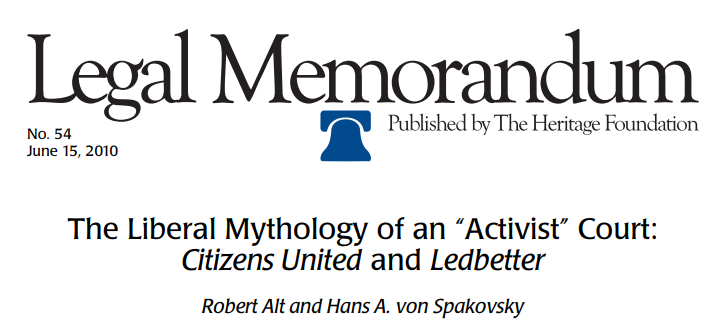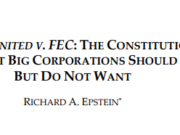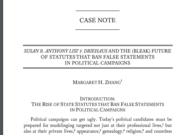Opponents of the Supreme Court’s decision in Citizens United v. FEC are currently engaged in a concerted effort to redefine judicial activism. Rather than accepting the true definition of judicial activism-when a judge applies his or her own policy preferences to uphold a statute or other government action which is clearly forbidden by the Constitution-the term is being applied anytime a statute is struck down or when a court delivers an unfavorable decision. Yet, the facts of this case and an examination of the legal analysis applied by the justices in their majority opinion show that there is no merit to any of these claims. Rather, the justices followed the original meaning of the Constitution and the applicable statutes when deciding the Citizens United case. In making their decision, the justices relied on precedents set in the seminal finance cases Buckley v. Valeo and Bellotti v. First National Bank of Boston. The cynical and derisive cries of judicial activism by Citizens United‘s opponents are unfair to the justices who participated in these decisions and injure the public’s faith and confidence in the judicial system.














